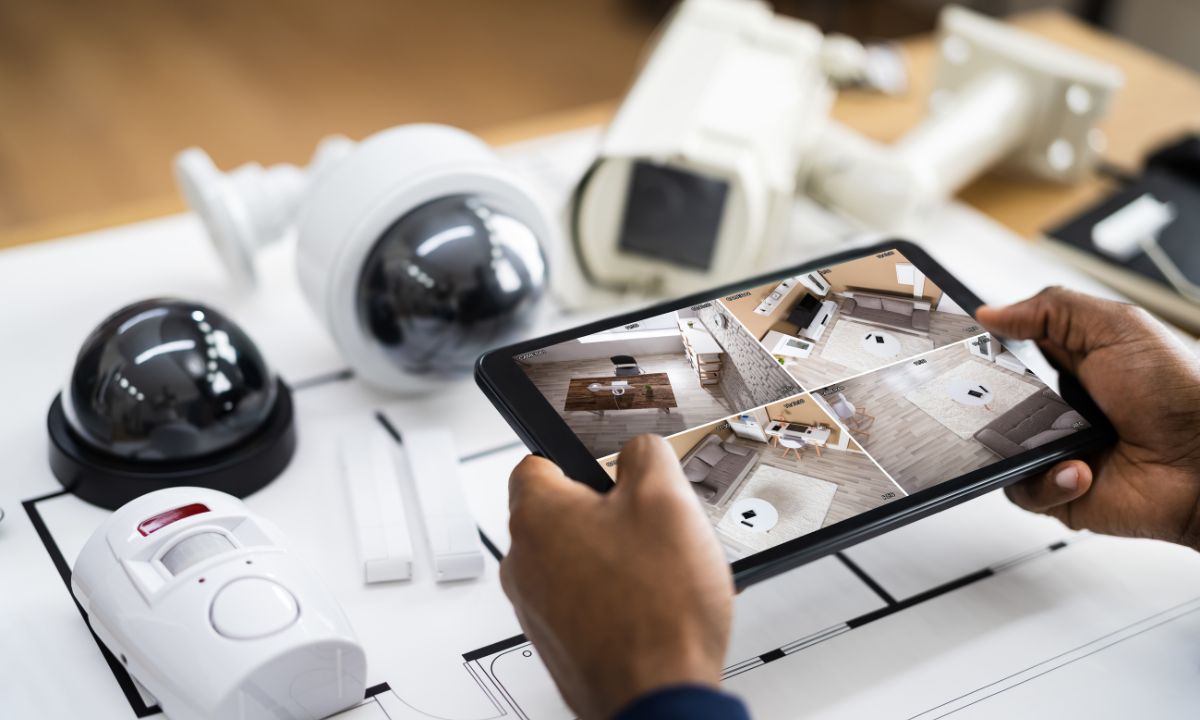 In today’s world, where the safety of our homes and loved ones is paramount, investing in a robust home security system is essential. Whether you’re a homeowner or renting, ensuring your peace of mind through effective security measures is achievable. Let’s discuss the essentials of home security systems and how you can fortify your home against potential threats.
In today’s world, where the safety of our homes and loved ones is paramount, investing in a robust home security system is essential. Whether you’re a homeowner or renting, ensuring your peace of mind through effective security measures is achievable. Let’s discuss the essentials of home security systems and how you can fortify your home against potential threats.
Understanding Home Security Systems
Home security systems encompass a range of devices and technologies designed to protect your home from intruders, emergencies, and other threats. These systems typically include:
Alarm Systems: Alarm systems are the backbone of home security. They include sensors placed on doors, windows, and other entry points, which trigger an alarm when breached. Modern alarm systems often integrate with mobile apps, allowing remote monitoring and control.
Surveillance Cameras: Surveillance cameras provide real-time monitoring of your property, deterring potential intruders and providing valuable evidence in the event of a break-in. With advancements in technology, many cameras offer high-definition video, night vision, and cloud storage for footage.
Motion Sensors: Motion sensors detect movement within your home and can trigger alarms or activate cameras. They are particularly useful in areas where installing cameras may not be practical or necessary.
Smart Locks: Smart locks replace traditional locks with electronic versions that can be controlled remotely via smartphone apps. They offer convenience and enhanced security by allowing you to grant access to trusted individuals and monitor who enters and exits your home.
Environmental Sensors: These sensors detect changes in temperature, humidity, and other environmental factors, alerting you to potential hazards such as fires or floods.
Choosing the Right System
When selecting a home security system, consider your specific needs, budget, and the layout of your home. Factors to consider include:
Coverage Area: Assess the size of your property and the areas you want to monitor. Larger homes may require more cameras and sensors for comprehensive coverage.
Connectivity Options: Look for systems that offer multiple connectivity options, such as Wi-Fi, cellular, and landline, to ensure reliability and flexibility.
Scalability: Choose a system that can easily be expanded or customized to accommodate future needs or changes to your living situation.
Professional Monitoring: Some security companies offer professional monitoring services, where trained professionals monitor your system 24/7 and dispatch emergency responders when needed. While this adds to the cost, it provides an additional layer of protection and peace of mind.
Integration with Smart Home Devices: If you already use smart home devices such as smart lights or thermostats, opt for a security system that can integrate seamlessly with them for enhanced automation and control.
Installation and Maintenance
Once you’ve selected a home security system, proper installation and maintenance are crucial to ensuring its effectiveness. Follow these tips:
Professional Installation: While some systems are DIY-friendly, others may require professional installation to ensure proper setup and functionality.
Regular Testing: Test your system regularly to ensure all components are functioning correctly. Replace batteries in sensors and cameras as needed, and update firmware and software to the latest versions.
Stay Informed: Keep yourself informed about any security vulnerabilities or updates related to your system. Many manufacturers release patches and updates to address potential vulnerabilities and improve performance.
Emergency Preparedness: Develop an emergency plan and share it with your family members. Make sure everyone knows how to arm and disarm the system, and what to do in case of an emergency.
Investing in a home security system is one of the most effective ways to protect your home and loved ones from potential threats. By understanding the different types of systems available, choosing the right one for your needs, and ensuring proper installation and maintenance, you can enjoy greater peace of mind knowing that your home is safe and secure.

